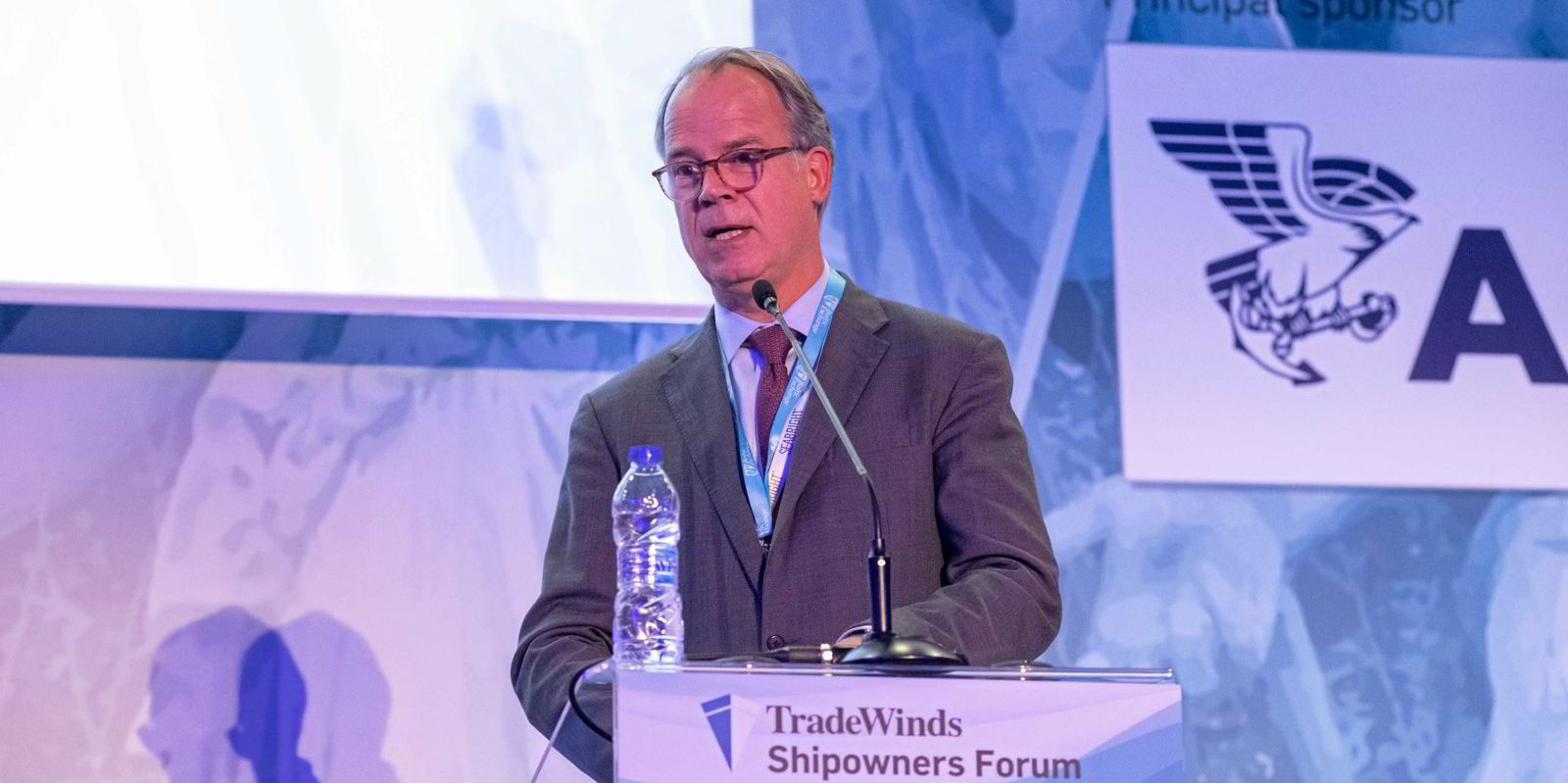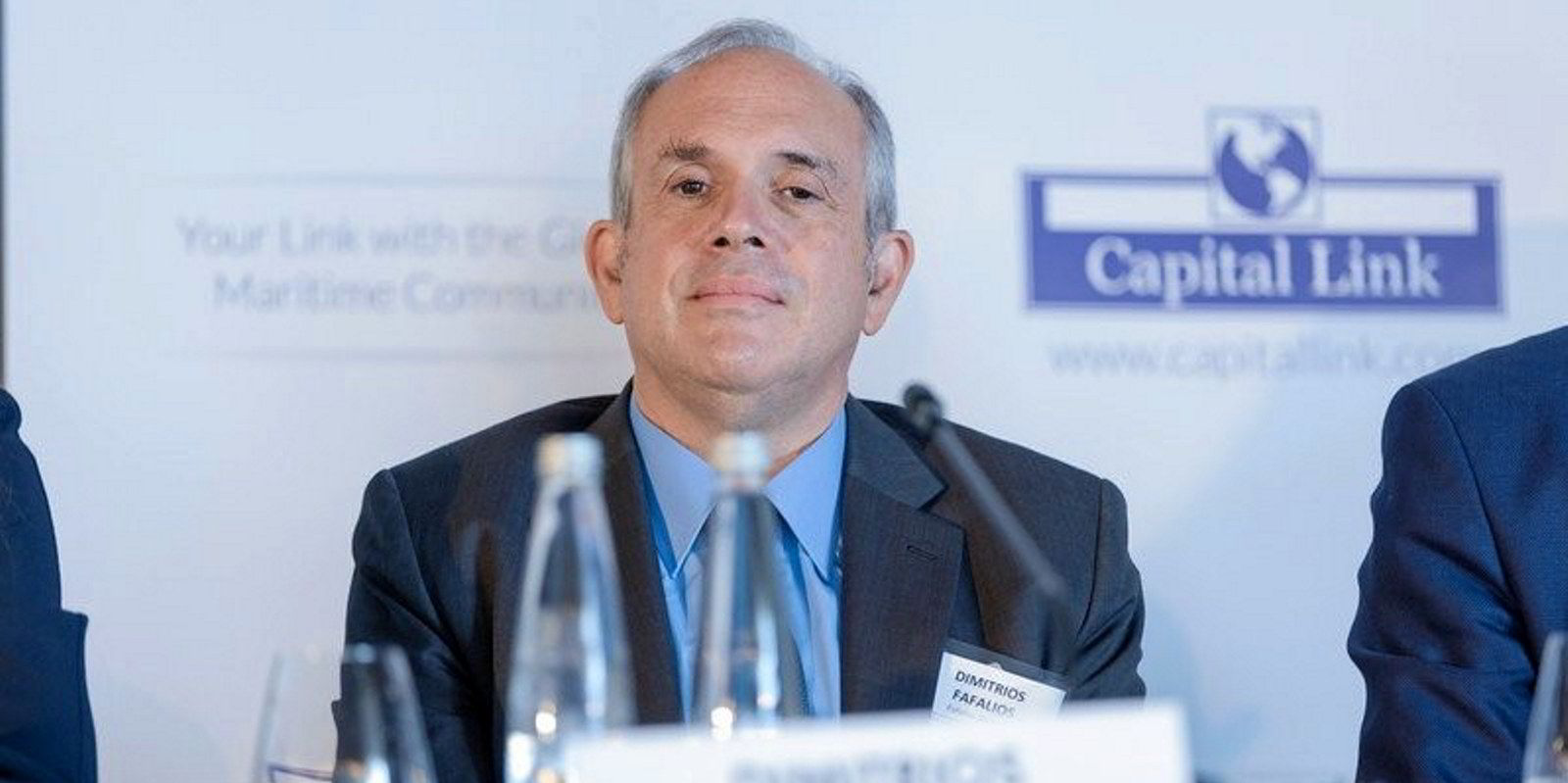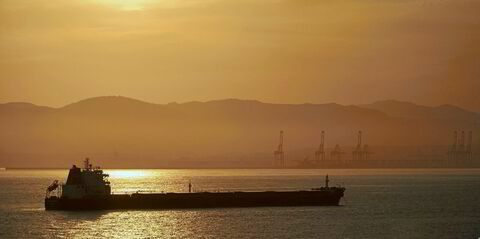Compared with the bitter battle over the future of fossil fuels that dominated the COP28 climate change summit in Dubai, the shipping industry has appeared a model of unanimity and steadfast purpose.
As COP28 country delegates traded angry barbs in final closed-door talks, shipping officials were heading home serenaded from the main decarbonisation talking shop by two harpists dressed as angels.
In the meeting rooms of the sprawling conference venue, delegates were slating Saudi Arabia over its refusal to agree to the phasing-out of oil. Outside, rival shipowners rubbed shoulders for photo opportunities.
The intra-industry harmony even spread to the International Maritime Organization, with key players reversing years of criticising red tape. Instead, they took turns advocating for additional regulations to drive the energy transition forward.
But as industry leaders acknowledged when shipping took its first turn in front of the lights at a climate change summit in Glasgow in 2021, the success of the decarbonisation journey would be judged by results. While the agreement at the IMO in July for a zero-emissions industry by 2050 marked a big step forward, gaps remain in translating that into action.
More than 200 methanol dual-fuel ships are on order, but they represent just 20% of what is currently needed. The scale of ship conversions is dwarfed by the sums required for new fuel production and bunkering infrastructure.
For a summit that was supposed to focus on implementation, there has been a lot of talk of “signals”, “objectives” and “encouragement” to the industry. Letters of intent and memoranda of understanding are not backed by hard cash. At least promises made publicly at the main forum are more difficult to back out of, German shipowner and Bimco president Nikolaus Schues points out.
Who was not at COP28 was also instructive. Shipping announcements were made by the biggest companies on the routes easiest to decarbonise, with money to invest. But that leaves many owners, with thousands of ships, who cannot afford to replace or retrofit their fleets.
Shipping has a natural advantage over other industries when it comes to decarbonisation, with a global regulator to set legally enforceable rules. But so has the aviation industry — and it is much further down the road, notably with fuel levies.
Plenty of complaints remain about the role of regional shipping measures such as the European Union’s Emissions Trading System — but the Europeans got there first.

‘Sense of regret’
For shipping, there are no regulations yet around how the transition will be funded. There is a big skills gap with universities unprepared to train a new generation of clean fuel engineers. There is no infrastructure to link potential high-production centres for hydrogen in Africa to shipping.
Francesco La Camera, head of the international body responsible for adopting renewable energy projects, spoke of a “sense of regret” because “we have put ourselves in a very difficult situation”.
The industry’s strategy at COP28 has been to reach out to the people it doesn’t regulate — the fuel producers, the ports and the politicians — to highlight its importance in the energy transition and make sure it gets its share of investment and fuels.
The fuel suppliers want to see evidence that the money will flow. Only a tiny fraction of plants making green hydrogen are getting final investment decisions because of uncertainty over finances. And yet the industry is looking to the carbon levy, or pricing mechanism, to justify its investment. The IMO is still doing its assessments and it won’t be discussed until March or adopted before 2025.
To be judged on results means you have to be in the game. At least the boots are now strapped on, and the industry has emerged from the changing rooms. It’s now time to play.




